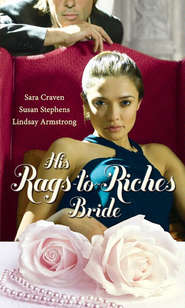По всем вопросам обращайтесь на: info@litportal.ru
(©) 2003-2024.
✖
Inherited by Her Enemy
Автор
Год написания книги
2018
Настройки чтения
Размер шрифта
Высота строк
Поля
‘No, Miss Ginny. But I knew there was something up earlier, Mrs Charlton having a carrying sort of voice, and Mavis all ears.’ She was silent for a moment. ‘So this French gentleman gets everything. Well, well.’
‘However, it doesn’t affect you,’ Ginny hastened to assure her. ‘Mr Charlton has made sure you’ll be taken care of.’
‘Now that I did know,’ Mrs Pelham said calmly. ‘He sat me down and talked it over with me two months since, and when Mr Hargreaves arrived, he gave me this letter with it all set out.’ She added with sudden fierceness, ‘He was a good man, the master, and I’ll never say otherwise, even if he didn’t always find the happiness he deserved.’
Ginny filled the kettle and set it on the big gas range. She said quietly, ‘Mrs Pel—have you any idea who Mr Duchard’s mother might have been?’
‘I can’t be certain, Miss Ginny.’ The housekeeper rose stiffly and began to assemble cups and saucers on a tray. ‘But I remember Linnet Farrell, the late Mrs Charlton’s companion. Here for a year she was, then one day she was gone, to nurse her sick mother it was said. Except she’d told me once that her parents were dead.’
Ginny retrieved the milk from the fridge and filled a jug. ‘What was she like?’
‘Not much in the way of looks,’ said Mrs Pelham. ‘But there was a sweetness about her just the same, and she made the house a brighter place. And Mrs Josie took to her too, for a wonder.’
Ginny said slowly, ‘I gather she was an invalid.’
‘Nerves,’ said Mrs Pelham. ‘And disappointment. That’s what it was at the start. She wanted a baby, you see, and it didn’t happen. Three miscarriages, all at four months, in as many years, and the doctors warning her she’d never carry a child full-term. She got into one of those depressions. Ended up in a nursing home, more than once.’
She sighed, ‘And when she was back at home, she spent all her time in bed, or lying on a couch. And poor Mr Charlton having to sleep in another room, as well.’
She lowered her voice. ‘I’m sure she loved him, but I don’t think she was very keen on married life, as it were. Not unless there was going to be a baby to make it worthwhile. But a man wouldn’t see it like that.’
No.’ Ginny emptied sugar into a bowl. ‘I—I don’t suppose he would.’
‘And suddenly there was this kind, warm-hearted girl living in the house, and he was an attractive man when he was younger. Not that I ever saw anything untoward, mind you,’ she added hastily. ‘And Linnet was good for Mrs Josie. Got her out and about, driving her car, and even doing some gardening.
‘But one day she just upped and left. Came in the kitchen to say goodbye, and it was plain she’d been crying.’ She sighed again. ‘And later on, Mrs Josie really did become ill, poor soul, with Parkinson’s disease, and Mr Charlton was as good to her as any husband could be, and enough said.’
She nodded with a kind of finality then glanced at the Aga. ‘And that kettle’s boiling, Miss Ginny.’
Ginny’s mind was whirling as she carried the tray into the study, but the torrent of grievance which greeted her soon brought her back to earth.
‘Well, at least you’ve got this annuity thing, Mother,’ Cilla was saying furiously. ‘Whereas he didn’t leave me a penny, the old skinflint.’
Ginny put the tray on the desk. She said mildly, ‘Perhaps he thought it was unnecessary, as you’re marrying into one of the richest families in the county.’
Cilla turned on her. ‘And you’re getting nothing too, so all that trying to wheedle your way into his good books was a waste of time. You’re going to be worse off than any of us,’ she added almost triumphantly.
‘So it would seem,’ Ginny agreed, sounding more cheerful than she felt, as she poured the tea. ‘But please don’t worry about it.’
‘I’m not,’ her sister said sulkily. ‘I just want to know how we’re going to pay for my wedding. Mother, you’ll have to talk to Mr Hargreaves. Get some more money out of him somehow.’
As Ginny poured out the tea, she noticed something. ‘Where’s Barney?’
‘I put him outside,’ said her mother. ‘I couldn’t bear him in the room a moment longer,’ she added, fanning herself with her handkerchief.
Ginny put down the pot. ‘You do realise he might have wandered off?’
‘What if he has? I told you I’m getting rid of him.’
‘You can’t do that,’ Ginny flung over her shoulder as she headed for the door. ‘Like everything else in this house, he probably belongs to Monsieur Duchard. And he’s a valuable dog.’
She huddled on her quilted jacket, pulled on her Wellington boots and grabbed a leash and a torch from the shelf in the boot room before letting herself out through the back door. The temperature outside wasn’t much above freezing, and she could see her breath like a cloud in front of her as she skirted the house, softly calling Barney’s name, hoping he would be waiting anxiously on the terrace for readmission.
But there was no sign of him. Biting her lip, she went round to the side gate, left carelessly open, probably by the departing Mavis, and stepped out on to the lane leading to the common.
As she walked, she called again, sweeping the area with her torch, knowing that he could be anywhere. As she reached the edge of the common, she took a deep breath then gave three soft whistles as Andrew used to do.
In the distance, there was an answering bark and a moment later, Barney came loping into view, tail wagging and tongue hanging out.
‘Good boy,’ Ginny said, sighing with relief as she attached the leash to his collar, but as she turned back towards the house, he resisted, standing stock still, staring back the way he’d come, and whimpering softly and excitedly.
As if, she thought, he was waiting for someone. She raised the torch, aiming the beam across the scrubby grass and clumps of gorse. She said sharply, ‘Who’s there?’
But there was no reply or sign of movement, and after a moment or two, Barney came out of alert mode and turned obediently for home.
You, my girl, she told herself grimly, had better stop being over-imaginative and get down to practicalities—like where you’ll go, and how the hell you’ll earn your living.
And, as she trudged back to the house, she found herself wishing, with a kind of bitter despair, that she’d never heard the name of Andre Duchard. Or, better still, that he’d never been born.
CHAPTER TWO (#ulink_ea0be455-14f6-5274-b038-5db307e6de59)
WHEN GINNY GOT back to the house, she found her mother alone in the drawing room.
She said, ‘Where’s Cilla?’
‘Off to the Manor to consult Jonathan about this appalling situation.’
‘In what way—consult?’
‘How we can fight this fraudulent will, of course,’ said Rosina, the ominous throb returning to her voice. ‘Oh, I can hardly bear to think of Andrew—his deceit—his betrayal of me. Of our love.’
She shook her head. ‘To have had a son—in secret—all these years, and said nothing to me—his wife. It beggars belief. It makes me almost wish...’
She broke off abruptly. ‘Get me a brandy, Virginia. A large one. I need something to settle my nerves.’
As Ginny busied herself with the decanter on a side table, Rosina added abruptly, ‘You’re so fortunate not to suffer in this way. Cilla and I are so sensitive, but nothing ever seems to affect you.’
‘That’s not true,’ Ginny said quietly, as she brought her mother the brandy. ‘But I don’t see any mileage in fussing over things I can’t change.’
‘But if we all stand together...’
‘We could end up looking grasping and silly.’
‘You might change your tune if you were the one faced with penury.’
If only you knew, Ginny thought bitterly. Aloud, she said mildly, ‘It’s hardly that, Mother. Whole families have to manage on much less.’ She paused. ‘Why don’t we go over tomorrow and have a look at the cottage? It may not be as bad as you think.’
Rosina tossed her head. ‘You go, if you want. I refuse to set foot in the place.’ She produced a handkerchief. ‘Oh, Andrew, how could you do this to me?’













